Recently, the Government of Vietnam issued Decree 115/2020/ND-CP regulating the recruitment, employment, and management of Vietnamese public employees, including new provisions. Below are 10 important new contents that Vietnamese public employees must master as of September 29, 2020
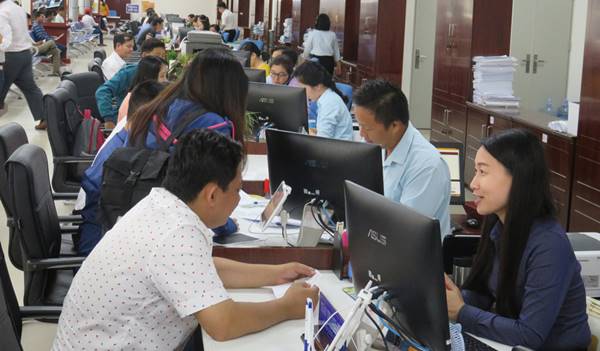
10 important new contents that Vietnamese public employees must master as of September 29, 2020 (Illustration)
1. Changes in the criteria for grading Vietnamese public employees
Under Clause 2, Article 3 of Decree 115/2020/ND-CP, based on training qualifications, Vietnamese public employees are graded as follows:
- Public employees holding professional titles that require a doctoral degree;
- Public employees holding professional titles that require a master's degree;
- Public employees holding professional titles that require a university degree;
- Public employees holding professional titles that require a college degree;
- Public employees holding professional titles that require an intermediate degree.
Meanwhile, under Clause 2, Article 3 of Decree 29/2012/ND-CP (expired as of September 29, 2020), based on professional titles, public employees are graded in each professional field with ranks from high to low, from Grade I to Grade IV.
Thus, under the new regulations, grading public employees shall be conducted based on training qualifications instead of professional titles as before.
2. Addition of persons eligible for priority points in the examination for recruitment of Vietnamese public employees
According to Article 6 of Decree 115/2020/ND-CP, persons eligible for priority points in examination or admission for recruitment of Vietnamese public employees from 2024 include:
- Heroes of the Armed Forces, Heroes of Labour, wounded soldiers, beneficiaries of policies as wounded soldiers and class B wounded soldiers: 7.5 points are added to the results of round 2;
- Ethnic minorities, military officers, police officers, professional servicemen serving as cadets, cipher officers who change branches, graduates of reserve officer training, graduates of commander training of commune-level military command committees of junior military branches awarded the rank of reserve officers registered as reserve officers, children of martyrs, children of wounded soldiers, children of sick soldiers, children of beneficiaries of policies such as wounded soldiers, children of class B wounded soldiers, children of resistance activists contaminated with chemical agents, children of Heroes of the Armed Forces, children of Heroes of Labor: 5 points are added to the results of round 2;
- People who complete military service, Police duty, and youth volunteers: 2.5 points are added to the results of round 2.
Compared to the regulation in Article 10 of Decree 29/2012/ND-CP amended by Decree 161/2018/ND-CP, the new regulation has added graduates of reserve officer training, graduates of commander training of commune-level military command committees of junior military branches awarded the rank of reserve officers registered as reserve officers to persons eligible for priority points in examination for recruitment of Vietnamese public employees.
At the same time, the new regulation removed the children of those who participated in revolutionary activities before the general uprising (before August 19, 1945) and young intellectual volunteers participating in rural and mountainous development for 24 months or more completed their duties from the list of persons eligible for priority points.
3. Persons accepted as Vietnamese public employees
According to Article 13 of Decree 115/2020/ND-CP, based on the conditions for registering for public employee recruitment and the requirements of the position to be recruited, the head of the agency or unit with recruitment authority may consider accepting the following persons as Vietnamese public employees:
- Those with at least 05 years of work experience in positions requiring a university degree or higher appropriate to the requirements of the position to be recruited and compulsory social insurance contributions (excluding probationary and trainee periods, if there is non-continuous work experience with compulsory social insurance contributions without receiving lump-sum social insurance payout, it can be accumulated, including previous work experience in positions under the subjects stipulated in this clause), including:
- Commune-level officials;
- Those under labor contracts doing specialized, professional jobs in public service providers or non-public service providers according to the law;
- Those receiving salaries in the people's armed forces, those working in cryptographic organizations;- Those working in enterprises wholly owned by the State, enterprises with more than 50% state-owned charter capital or total voting shares;
- Those working in political-social-professional organizations, social organizations, and social-professional organizations.
- Those with special talents or exceptional abilities suitable for the job position in fields such as culture, arts, sports, and traditional occupations.
- Those who were once officials and public employees, later approved for transfer to work in the armed forces, cryptographic organizations, political-social-professional organizations, social organizations, social-professional organizations, enterprises wholly owned by the State, or enterprises with more than 50% state-owned charter capital or total voting shares.
Compared to the regulation in Article 19 of Decree 29/2012/ND-CP, amended by Decree 161/2018/ND-CP, the new regulation has added those working in political-social-professional organizations, social organizations, and social-professional organizations to persons accepted as Vietnamese public employees.
4. Detailed regulations on working contracts of Vietnamese public employees
Under Article 19 of Decree 115/2020/ND-CP, the working contract is signed in writing between the public employee or the person recruited as a public employee and the head of the public service provider. In the case of the public employee being the head of the public service provider, the working contract is signed by the competent authority that manages the public service provider.
For public employees recruited before July 1, 2020, but still performing fixed-term working contracts, they shall continue to perform the signed working contracts. Even if the public employee transfers to another public service provider, after the signed employment contract expires, an indefinite working contract will be signed if all legal requirements are met.
Additionally, the regulation allows that during the implementation of the working contract, if there are any changes, the public employee or the person recruited as a public employee may negotiate with the head of the public service provider concerning these changes. These changes can be conducted by signing a working contract appendix or a new working contract with the changed contents.
Thus, compared to the regulation in Article 19 of Decree 29/2012/ND-CP, this new regulation has more specific and detailed guidelines concerning working contracts. Moreover, templates for various types of working contracts will now be issued by the Government of Vietnam attached to this new Decree instead of the Ministry of Home Affairs under the previous regulation.
5. The sickness leave period included in the probationary period
According to Clause 2, Article 21 of Decree 115/2020/ND-CP, the probationary period of Vietnamese public employees is prescribed as follows:
- 12 months in case of recruitment to professional titles requiring university training qualification standards.
Particularly for the professional title of a doctor, the probationary period is 09 months;
- 09 months in case of recruitment to professional titles requiring college training qualification standards;
- 06 months in case of recruitment to professional titles requiring intermediate training qualification standards.
- Maternity leave period under the social insurance benefits, sickness leave period of 14 days or more, unpaid leave, the period on detention, custody, or temporary suspension of work as prescribed by law shall not be included in the probationary period.
Note: If a probationer takes a sickness leave or leave with legitimate reasons for less than 14 days under the approval of the head of the public service provider where the probationer is recruited, the sickness leave period shall be included in the probationary period.
This new regulation inherits the provisions of Article 20 of Decree 29/2012/ND-CP and adds the provision that if a probationer takes a sickness leave or leave with legitimate reasons for less than 14 days under the approval of the head of the public service provider where the probationer is recruited, the sickness leave period shall be included in the probationary period.
6. Failure to assign Vietnamese public employees on probation to a job position other than the recruited one
Under Clause 6, Article 21 of Decree 115/2020/ND-CP, Vietnamese public employees on probation must not be assigned or arranged to a job position other than the recruited one within the same public service provider or at another public service provider.
In contrast, this regulation is not specified in Article 20 of Decree 29/2012/ND-CP.
Thus, this is a completely new regulation and aligns with practical scenarios because public employees in probationary policies on one job position, if arranged to another job position or public service provider, would face difficulties adapting to the new job or working environment.
7. Addition of Vietnamese public employees on probation entitled to 100% salary and allowances
Under Point c, Clause 2 of Article 23 of Decree 115/2020/ND-CP, Vietnamese public employees on probation who have completed military service, police duty, officers, soldiers returning from service; graduates of reserve officer training, graduates of commander training of commune-level military command committees of junior military branches awarded the rank of reserve officers registered as reserve officers, youth volunteer members, young intellectual volunteers participating in rural and mountainous development for 24 months or more completed their duties, are entitled to 100% of the salary and allowances of the professional title corresponding to their training qualifications.
Thus, compared to the regulation in Article 22 of Decree 29/2012/ND-CP, the new regulation has added graduates of reserve officer training, graduates of commander training of commune-level military command committees of junior military branches awarded the rank of reserve officers registered as reserve officers to persons entitled to 100% salary and allowances during probationary periods.
8. New conditions for registering for promotion to the higher professional title
According to Article 32 of Decree 115/2020/ND-CP, public employees can register for promotion to a higher professional title when meeting the following standards and conditions:
Firstly, they have been rated at least good in performance evaluation for the year immediately preceding the promotion examination or consideration; possess good political and ethical qualities; not under disciplinary action or during implementing disciplinary regulations.
Secondly, they have the professional and technical capacity to assume the higher professional title within the same professional field;
Thirdly, they meet the requirements for diplomas, certificates, and other standard criteria for the higher professional title;
Fourthly, they meet the minimum working time at the lower professional title as required by the standards of the higher professional title.
Thus, compared to Decree 29/2012/ND-CP, this is a completely new provision. This regulation specifies the conditions for public employees to register for examination or consideration for promotion to higher professional titles, aiding public employees and the authorities in managing and employing public employees more effectively.
9. Shortening of the time limit for settlement of resignation policies for Vietnamese public employees
According to Clause 3, Article 57 of Decree 115/2020/ND-CP, within 05 working days from the date of receiving the resignation letter from the public employee, if approved, the head of the public service provider terminates the working contract and settles the resignation policies for the public employee as prescribed. In case of disapproval, a written response with a clear reason must be provided to the public employee.
Meanwhile, Clause 3, Article 38 of Decree 29/2012/ND-CP stipulates this period as 20 working days.
The time limit for settlement of resignation policies for Vietnamese public employees will be shortened from 20 days to 05 days (15 days faster) compared to before.
10. Additional regulations on Vietnamese public employees ineligible for resignation policies
Clause 4, Article 57 of Decree 115/2020/ND-CP states Vietnamese public employees ineligible for resignation policies:
- Public employees approved for transfers to work in other agencies, organizations, or units within the political system;
- Public employees who have retirement notices or fall under the streamlining payroll policies according to the law;- Public employees not receiving severance pay according to Clause 2, Article 29 of the Public Employees Law:
+ When unilaterally terminating the working contract, the head of the public service provider must inform the public employee at least 45 days for indefinite contracts or at least 30 days for fixed-term contracts;
+ Specifically, for public employees recruited by the agency managing the public service provider, the unilateral termination of the working contract is decided by the head of the public service provider after receiving written approval from the managing agency.
Thus, compared to Article 38 of Decree 29/2012/ND-CP amended by Decree 161/2018/ND-CP, Decree 115 added public employees ineligible for severance pay to Vietnamese public employees ineligible for resignation policies according to Clause 2, Article 29 of the Public Employees Law, aside from the two previously stipulated cases. This regulation aligns with current realities, not only protecting the legal rights of public employees but also enhancing the effectiveness of public employee management in public service providers.
Le Vy
 Article table of contents
Article table of contents
![[InfoGraphic] 6 forms of discipline for officials and public employees under Decree 71/2016/ND-CP](https://cdn.lawnet.vn//uploads/NewsThumbnail/2016/07/12/1319291-01.png)
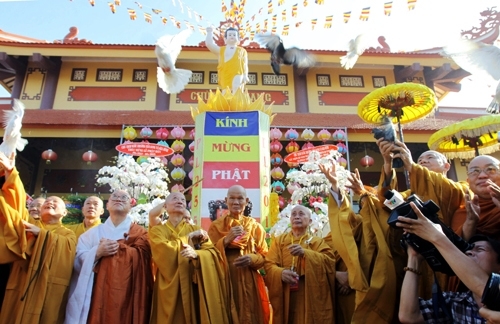
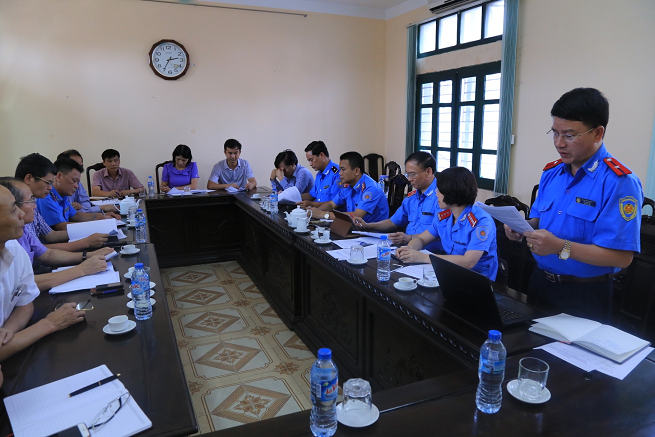


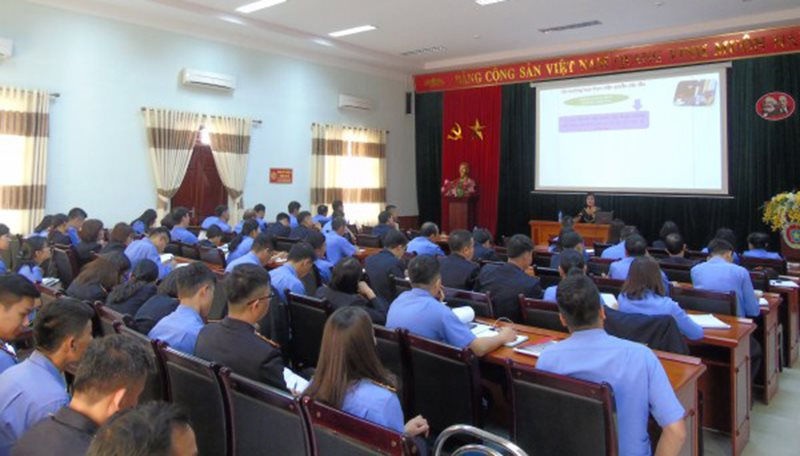
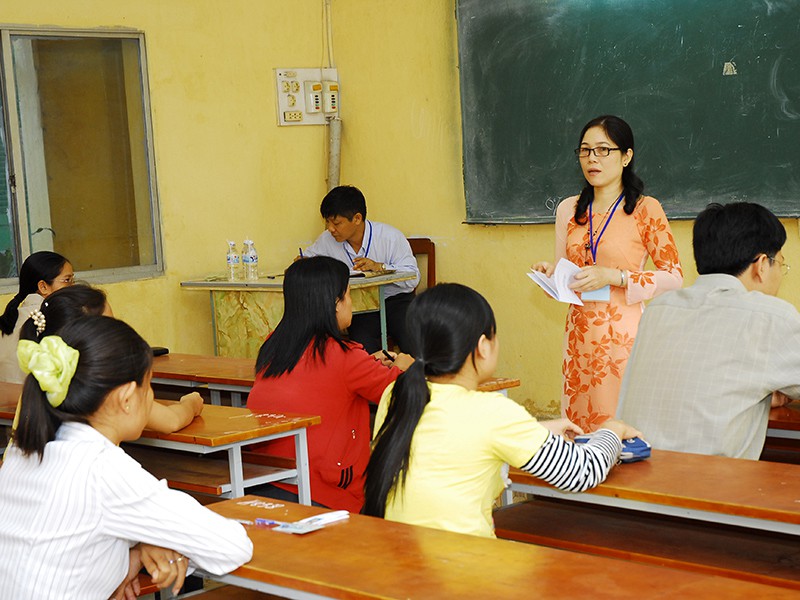
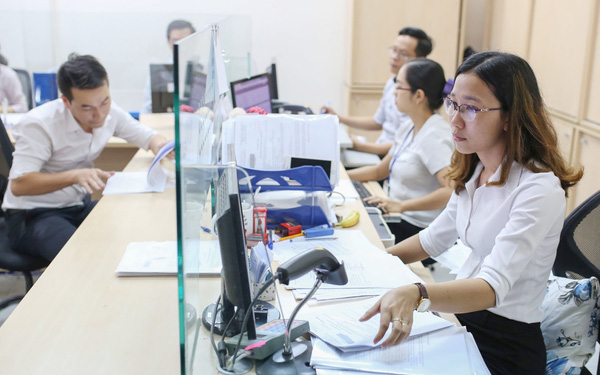
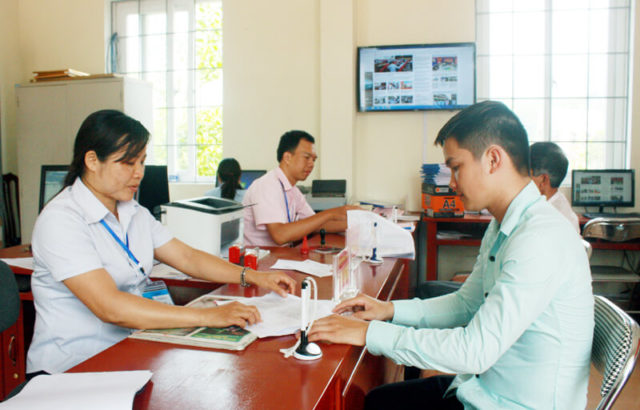

.Medium.png)
.Medium.png)
.Medium.png)
.Medium.png)
